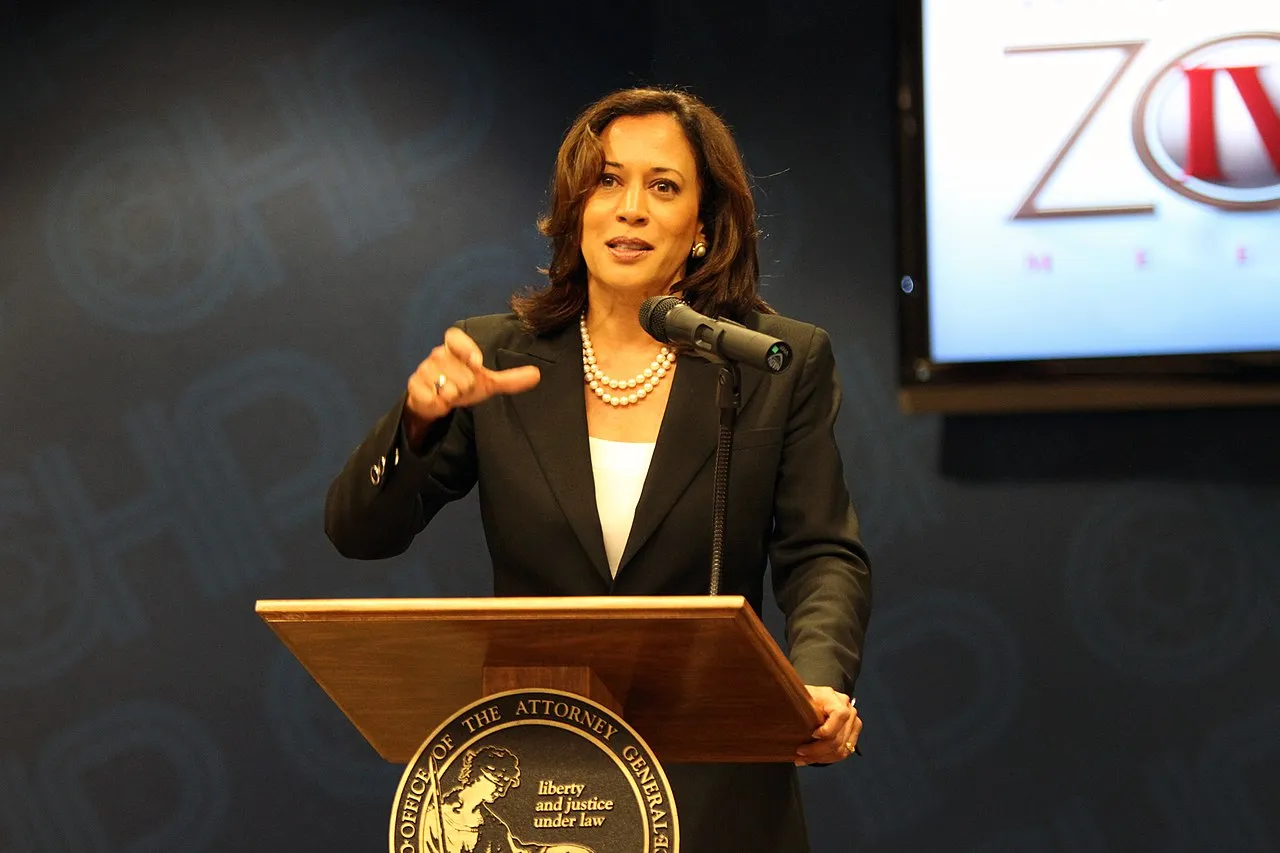Back in 2003, when Kamala Harris was first running for office in San Francisco, she wasn’t just battling Terence Hallinan, the erratic, older white guy who’d served as district attorney for eight years (and been her boss for 18 or so miserable months). She was running against the city’s powerful Democratic machine.
To win, Harris had to pull together her own support system—a network of accomplished and well-connected friends who were passionate, and practical, about helping women get elected. One of those early boosters was Andrea Dew Steele, a Hillary Clinton ally and former Capitol Hill staffer who had recently moved to San Francisco. Her dismay at how few women held local office in the early 2000s led her to co-found a training program for women candidates called Emerge California, and a few years later, a national version, Emerge America.
“The minute I met Kamala I thought she should run for office,” Steele told me back in 2007 when I was interviewing her for a profile of Harris. “She is extremely smart and very good on the policy side, but also, such a charismatic person.”
But Harris needed convincing. “Men wake up in the morning and they think, ‘Well, I think I’ll run for president,’” Steele said. “Women need to be cajoled and encouraged. And they need training.”
Once she was in, Harris proved to be an extraordinarily quick study, honing a clear message, raising lots of money, and winning over some influential pols (including US Senator Dianne Feinstein but not House Minority Leader Nancy Pelosi, a machine stalwart and Hallinan loyalist). After starting the race with just 6 percent name recognition, Harris went on to trounce her old boss with 56 percent of the vote.
“Men wake up in the morning and they think, ‘Well, I think I’ll run for president.’ Women need to be cajoled and encouraged. And they need training.”
That 2003 race was a proof of concept. Twenty years later, Emerge (as it’s known today) and its state affiliates have helped elect more than 1,200 Democratic women currently in office, including two governors, two lieutenant governors, and eight members of Congress. For 2023 races, Emerge claims a 74 percent win rate—nearly 250 alums elected; this November, more than 600 alums are on the ballot. Steele, a social entrepreneur and philanthropic advisor, is now an Emerge emeritus; the organization’s current leadership reflects what it calls the New American Majority—an increasingly diverse and youthful electorate that Harris herself embodies. “I don’t think we’re surprised to see the original Emerge woman at the top of the Democratic presidential ticket,” says A’shanti Gholar, Emerge’s president since 2020. “It is such an exciting moment.”
But mixed with the exhilaration is also frustration with the racism and sexism that permeate politics and the media. Plus a serious concern with escalating and seemingly pervasive disinformation, which Gholar says, “really spikes when it comes to women candidates,” from the nation’s highest office to down-ballot races. Now, with Harris enjoying a historic candidacy, I was curious to learn more about how Emerge has evolved over these last two decades and what it is doing to make good on its mission of “creating a world where there are no more firsts”—where Black, brown and Indigenous women, young women, unmarried women, and LGBTQ women routinely run for office and win. I spoke with Gholar from her Washington, DC, base. Our conversation has been edited for length and clarity.
Read the rest at Mother Jones.







